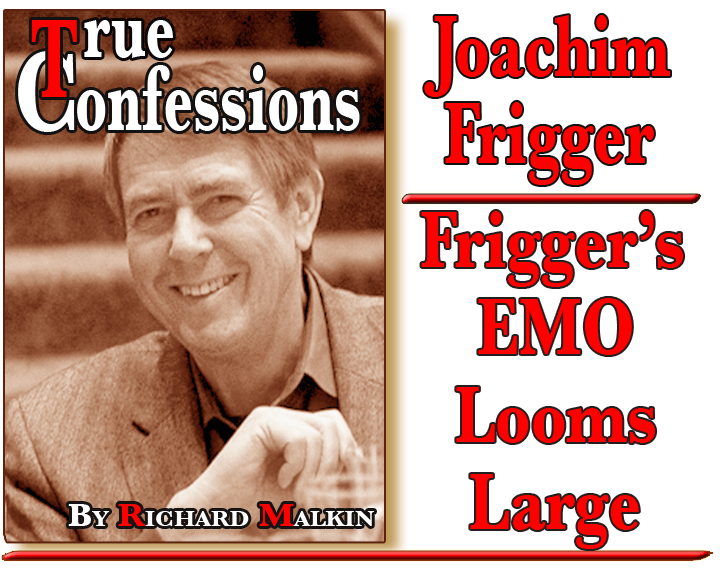
The vocational course to
the airline industry is arrow-straight for the educationally dedicated
and the community of popular enthusiasts. For others, even for those who
have achieved high-level office—and in the present context, air
cargo— it is a winding, accidental route. For Joachim H. Frigger,
who has been more than a half-century in the world of air shipping, it
was purely “coincidental”.
The coincidence turned out to have a life
of its own. It proved that, in Frigger’s specific case and ultimate
record, that Disraeli’s observation that life has a value only when
it has an objective, it was a perfect fit for EMO Trans’ chief executive.
The present is time for celebration for
EMO. A birthday cake is in order—a cake with 50 glowing candles
to mark an ascent from a modest facility near Stuttgart Airport to an
impressive base in Freeport, close to New York’s John F. Kennedy
International Airport. The years in between have been a hardy adventure
in the complexity of rampant competition, customer demands and targeted
yields. But Frigger’s close personal attention to management and
detail, deep concern about customer satisfaction on a global scale, and
a spirited participant in industry affairs, have been a colorful if ardent,
but carefully directed, substantial industry status.
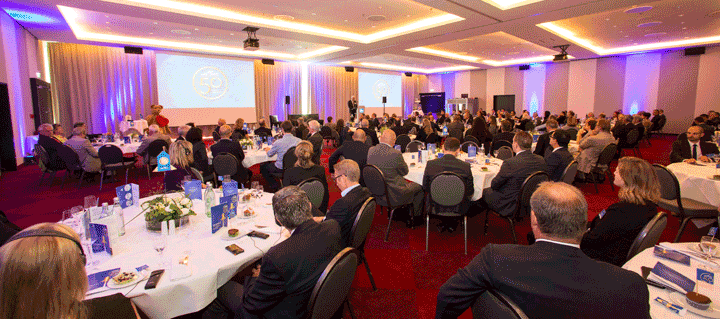 |
Over the decades,
EMO has been built into a freight forwarding firm that offers
a complete range of global shipping services, standard or individualized.
They extend to warehousing, distribution, etc. The company’s
market share is equally divided between air and ocean transport.
European movements account for
half of the company’s foreign air freight market, followed
by Asia/Pacific which provides 30% of the total. The Middle
East and Latin America divide equally the balance of 20%. U.S.
imports form 60% of the total, and exports 40%.
Frigger confirmed that cost increases
in sea transport have had a positive effect on air freight.
He localized it to the West Coast. With regard to reports that
a disturbing number of airshippers in the Orient have returned
to ocean transport, Frigger stated that this is primarily due
to cost. Other sources have pointed out that such cases largely
involved shipments of low-price products.
The world markets, as usual, were
in a state of imbalance. The impact of China’s devalued
currency was yet to be felt. EMO, he said, maintained its footing
in the “turbulent” Asian and Brazilian markets.
Greater stability was to be found in Western Europe. As for
the company’s African destinations, Frigger was inclined
to call them promising.
Industry analysts have pointed
out that much of the value of jet transportation is eroded on
the ground, on the tarmac, in the warehouse and office. Asked
to comment on how he found cargo-handling conditions at the
airport, Frigger’s instant response, spoken flatly and
with obvious emphasis, was that “many airports need substantial
improvements”. Without identifying airports under criticism,
he underscored the vital importance of quick availability of
freight arrivals. There have been instances where customs clearance
procedures were not in full step with jet flight. He also took
aim at procedure applicable to pickup- and -delivery motor vehicles.
In regard to the latter, he remarked on his utter frustration
watching long lines of trucks waiting to pick up their loads.
Returning to a more conversational tone, EMO’s chief noted
the disparity of cargo-handling standards at airports both here
and abroad.
The number of airports around
the world that Frigger has come to know are virtually countless.
Asked to estimate how many air miles he has logged in his career,
he cheerfully stated: “Enough to be a lifetime member
of many airline frequency flyer programs.” At any rate,
asked which airports he considered the world’s best from
a cargo-service standpoint, his choices were Frankfurt Airport
and Singapore’s Changi Airport.
A native of Opladen, Germany,
Joachim Frigger’s high school education was broadened
at a school of business, leading to an apprenticeship program
in Cologne. He joined Haniel in that city in 1958. Four years
later he began a decade-long association with Deugro, which
brought him from Cologne and Duesseldorf to New York. It was
here where Frigger took over the presidency of EMO Trans, an
international freight forwarding operation with a market share
divided 50-50 between air and ocean.
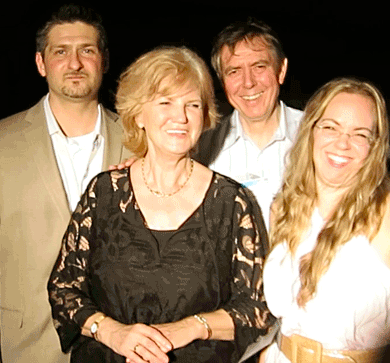 |
Married to Karin,
who also worked in the early New York EMO organization, and
with a son and a daughter today serving in key EMO positions,
the Frigger identity has been extended to a second generation:
Jennifer is vice president-sales and marketing; Sven, director-compliance.
As the old saying goes, like father, like son (and daughter).
Now 74, with a long history of
often bumpy relations between the airlines and forwarders in
the back of his mind, Jo Frigger presented his interpretation
of the current state of their relationship. Referring to Cargo
Network Services, he said: “Under capable leadership,
CNS provided a fairly open dialogue between airlines and freight
forwarders. Now that CNS is totally dominated by IATA, the constructive
exchange is basically gone. IATA obviously prefers this rather
than expanding the CNS model to other countries. A lost opportunity
for the entire industry.”
Of course, change is in the air
for all of the business of airborne shipping. To what extent
has the nature of air freight forwarding undergone change? “Tremendous,”
he declared, his voice rising. “Vast changes in terms
of electronic tools. The system of e-freight is utilized to
an important extent. Competition between forwarder and integrator
is fierce. However, the integrator will never be able to provide
the specialized service of an air freight forwarder. Apart from
what I have said, there has been very little change in fundamental
needs for customer service and relations.”
Queried whether the availability
of widebody cargo bellies reduced the need for all-cargo lift,
his reply was a simple “No”.
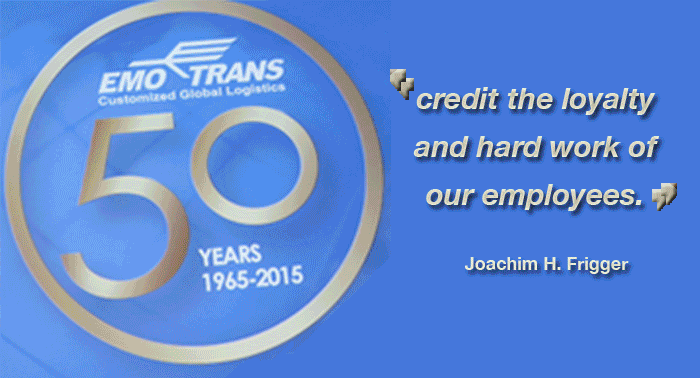 |
Customer complaints? Perish the
thought of absolute serenity. Customers, Frigger reported, voice
several levels of upset at the alleged result of lack of transparency
at the airlines. He targeted both air and ocean carriers for
what customers claimed is “a lack of accuracy in track
and trace.”
A standard question in this series
of interviews is whether price or service is the prime concern
of the air shipper. Put to this question, Frigger said, “both,”
and preferred to leave it at that.
EMO’s head again made short
work of a question seeking his opinion of the current international
air freight rate situation. “Complex and confusing,”
he snapped.
Confined to the freight forwarding
sector of the air transportation business, does a position in
management—sales, traffic, operations, etc.—does
the employee’s responsibilities and often complex related
activities convey the knowledge of a person deep in an authentic
profession? Or is it simply “a better job.” At that
level, Frigger said, “the task requires a professional,
an individual loaded with expertise to handle the challenges.
And with enthusiasm, I might add.”
How far has the company gone to
comply with cargo–security regulations? Jo Frigger swiftly
conveyed an impression of high-priority imperative. Speaking
in measured tone, he stated: “We have our own screening
stations and work very closely with the TSA to secure all cargo
we handle.” Cargo security, he added is an obligation
“we embrace”.
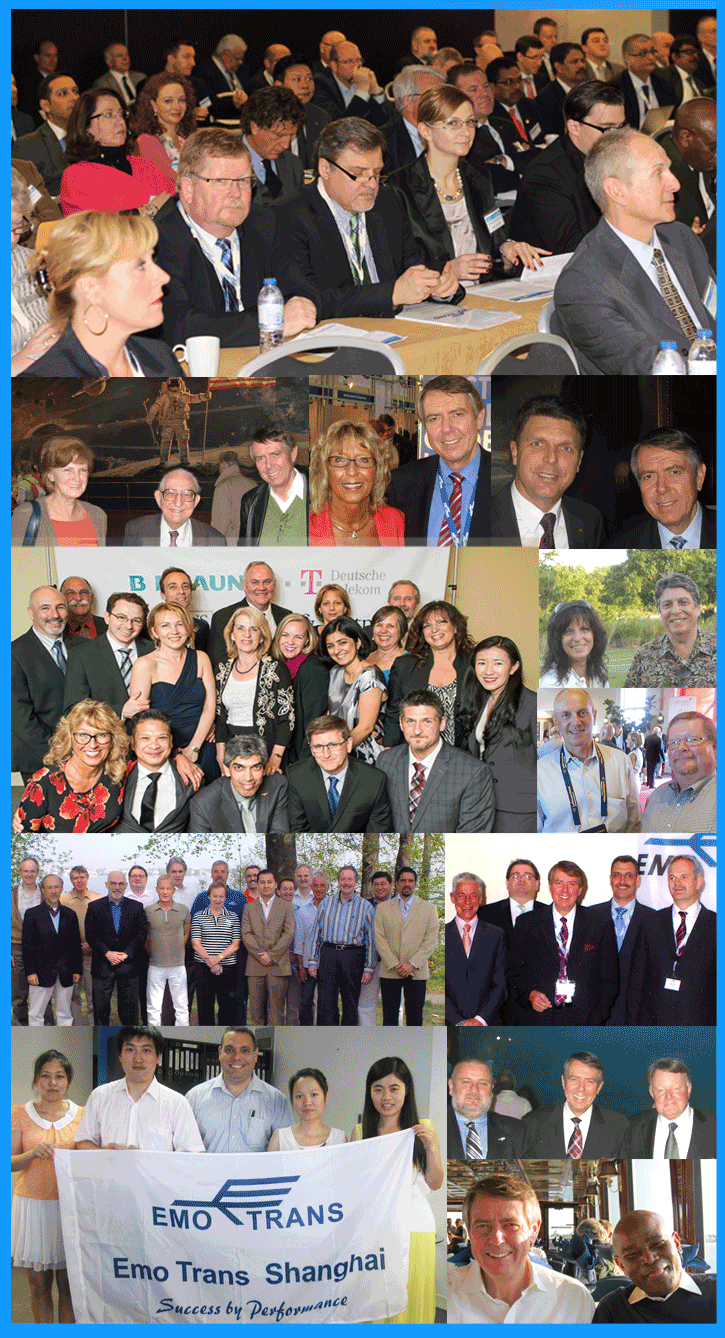
Attuned to a conviction that air
cargo business is a people business. He leans heavily on personal
customer contact. Recalling an earlier interview, he reiterated
the reliance on “human ingenuity”. To cope with
problems that seemingly endlessly arise in both cargo modes,
distribution, warehousing and “all international transportation
needs”.
In an informal chat, Frigger recently
expressed the idea that “open dialogue” will improve
mutual understanding and appreciation of each problem as unique.
It applies to dealing with the airline, and it applies to dealings
with the customer. “It is what has worked for EMO Trans
over the years”.
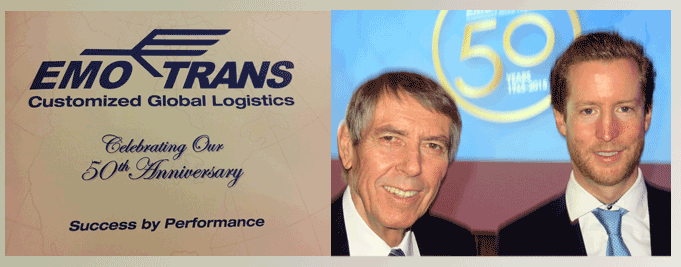 |
By physical attitude,
expressive gesture and word, EMO’s CEO asserted the centrality
of customer satisfaction. In line with the old but still worthy
concept that cooperation is the basis of success, EMO has found
that often the effort to meet customers’ special requirements
will translate into a zone of creative muscle. It inevitably
leads to greater efficiency in customer service—and satisfaction.
As corporate mottoes go, EMO clings to one of its own: Success
By Performance.
Industry experience in post-deregulation
years has produced a number of air freight forwarding executives
who have claimed being pinched by the total absence of regulations.
No, they are not opposed to deregulation, but they wish the
Civil Aeronautics Board had left behind a regulation or two
to keep the industry a bit more orderly. Does Frigger agree?
“Not at all.”
Readers familiar with this series
of interviews are aware that the subject of an interview is
usually asked to identify individuals who have exerted an impact
on their career. In an uncommon response to the demand, Frigger
instantly said, “My parents.” Having succeeded in
getting this tribute on the record, he named Gustav Grosskopf,
his mentor during his years in Cologne and Duesseldorf. Frigger
gave the question a little more consideration and added, “Many
of my friends around the world.”
Virtually every air cargo employee
has at least one story to relate about an exciting or unusual
event. Jo Frigger is no exception, but he chose to divide his
four examples into operations and corporate-related markers:
chasing lost air freight in Turkey (1964); supplying Red Cross
aid to Palestinian refugees in Jordan (1968); EMO Trans’
opening in New York; and developing the firm into an authentic
global organization.
A request to share a suspicion
of a possible lurking market or industry “danger”
in the foreseeable future produced a tongue-in-cheek answer:
“Only when planes stop flying.”
 |
On the topic of air
cargo industry changes, Frigger was brought to full voice: “The
basic responsibility in the industry for the freight forwarder
is to move cargo from manufacturer to consumer by utilizing
carriers’ warehouses, and customs facilities. In that
regard, the responsibility of the freight forwarder has not
changed much—not even the speed of the carriers. Airplanes
and ships don’t move much faster than they did 40 year
years ago. What has changed is the speed of communication and
customer demand for total transparency of the location of the
cargo at each step of the logistics chain. What also has changed
is the strong demand of customers for environmental sustainability.
While this has been mastered by some of the service providers
involved, there is still a lot of room for improvement.”
With EMO Trans at age 50, what
are your thoughts about it? Frigger gave credit to “the
loyalty and hard work of our employees.”
For the existence of a global
organization with 92 offices, he went on to say, “Looking
back, however is less beneficial planning forward. EMO Trans
will continue to expand progressively in new countries with
organic growth.”
With half a century of EMO growth
behind him, how does a CEO like yourself relax? Said Jo Frigger:
“By farming, by diving, by traveling.”
Richard Malkin
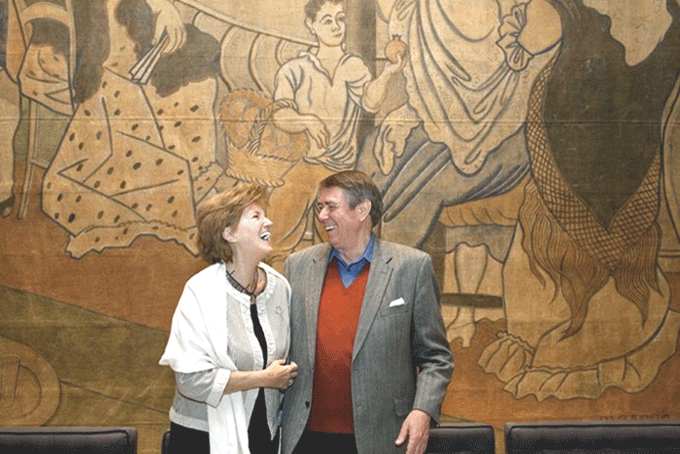
Speaking of Barcelona where EMO is
having their global network meeting, and Master Picasso.
. . Here are Jo and Karin Frigger with a Picasso
tapestry titled “Le Tricorne” at New York’s
Four Seasons Restaurant a few years ago. Le Tricorne”
was recently removed from the lobby of the Four Seasons
and placed at the New York Historical Society. Jo and
Karin continue to make air cargo history. |
malkin101@aircargonews.com |



